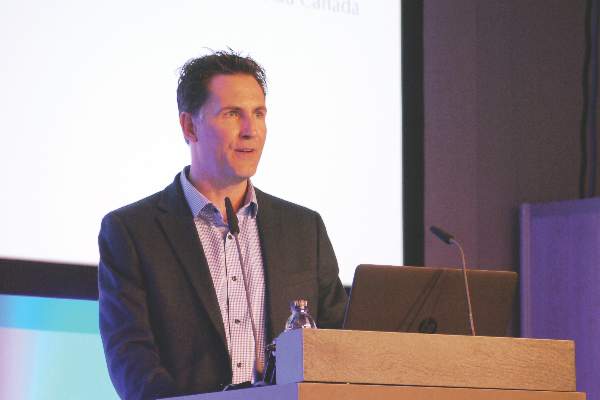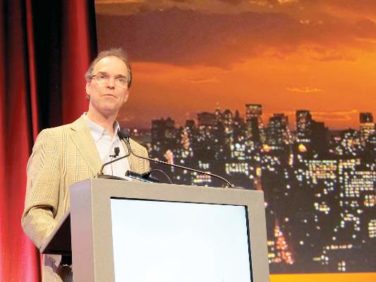AT THE INTERNATIONAL LIVER CONGRESS 2016
BARCELONA (FRONTLINE MEDICAL NEWS)– The monoclonal antibody vedolizumab may reduce biliary inflammation in patients with primary sclerosing cholangitis and comorbid inflammatory bowel disease, according to early, open-label study findings reported at the meeting sponsored by the European Association for the Study of the Liver.
Vedolizumab given to 27 patients with primary sclerosing cholangitis (PSC) and inflammatory bowel disease (IBD) resulted in a 50% reduction or normalization of serum alkaline phosphatase levels in 17 cases (63%).
The findings are important as there is currently no medical treatment approved by the Food and Drug Administration for PSC. Although ursodeoxycholic acid is commonly used, there is no proof that it actually works in PSC, and the only option for patients, who are aged 30-40 years at diagnosis, is to wait until the disease has progressed far enough to warrant liver transplantation, which usually happens within 10-15 years.
The findings provide proof of concept that aberrant gut immunity could be behind the development of PSC, said Dr. Bertus Eksteen of the Snyder Institute for Chronic Diseases at the University of Calgary (Alta.).
“Many years ago we proposed that aberrant gut immunity has a significant role to play in PSC,” Dr. Eksteen said. He explained that the gut adhesion molecules CCL25 and MAdCAM-1 are possibly to blame as these can be aberrantly expressed in the liver of patients with PSC. This results in the recruitment of T cells expressing CCR9 and alpha 4 beta 7, which move from the gut and home in on the liver.
Vedolizumab (Entyvio), which targets alpha 4 beta 7, is licensed in the United States and in Europe for the treatment of IBD. The interest in using this particular drug in patients with PSC also stems from the fact that between 70% and 85% of patients with PSC have ulcerative colitis or Crohn’s disease.
More than two-thirds of patients were aged between 20 and 40 years old, around 38% had mild and 38% had moderate fibrosis, and only two had received prior treatment with ursodeoxycholic acid. Most (n = 17) of those studied had ulcerative colitis.
Three intravenous doses of vedolizumab (300 mg) were given at week 0, 2, and 6. Dr. Eksteen noted that this was the induction phase and the maintenance dosing phase of the study was ongoing. Vedolizumab is being given every 8 weeks for maintenance, he noted during discussion.
There was no change in fibrosis but that is not surprising with a short induction treatment period. Reductions in alkaline phosphatase levels often preceded clinical IBD responses, Dr. Eksteen said.
The most common adverse events were tiredness within 24 hours in six patients and redness at the infusion site in two patients, but no serious adverse events were reported.
Whether vedolizumab would be beneficial in patients with PSC without comorbid IBD remains to be seen and specifically studied. Dr. Eksteen suggested that because many of the patients included in the study had inactive or mild to moderate IBD at baseline the results were encouraging that an effect may be seen regardless of IBD.
A grant from the Canadian Institutes of Health Research funded the study. Dr. Eksteen did not report having any relevant financial disclosures. His research is funded by grants from the American Liver Foundation, the Medical Research Council (U.K.), and the Bowel Disease Research Foundation (U.K.).




